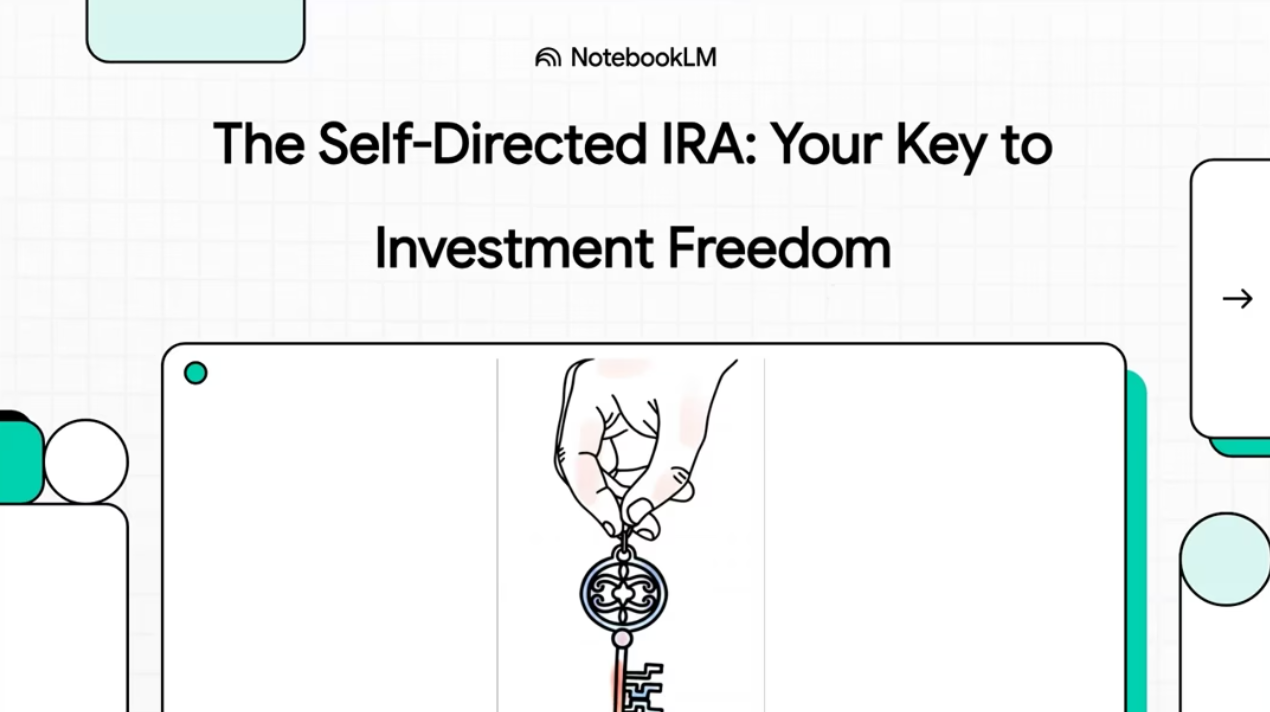Investing in Non-Performing Notes

Investing in notes secured by real property can be a great way to diversify your retirement portfolio in a self-directed IRA or Solo 401(k) plan.
There are various types of notes that can provide attractive returns, including longer term private mortgages or short-term loans to flippers often referred to as hard money lending. Because the loan is secured by real property, there is a certain degree of stability and security. Notes provide consistent returns, with payments coming in each month.
Non-performing notes are another facet of this asset class, and represent an opportunity with a higher risk factor, but a corresponding potential for exceptionally high returns.
What is a Non-Performing or Distressed Note?
When a borrower takes out a loan for the purchase of real estate, the lender’s capital is secured by a mortgage or deed of trust and a promissory note. If the borrower fails to repay the debt, the lender has a lien against the property and can choose to foreclose on the property to redeem their capital.
In some cases, the lender, whether a bank, investment fund or other private lender may choose to sell the note at a discount to another investor rather than go through the process of foreclosure. This can save the original lender a good bit of time and expense, and allow them to recoup an acceptable amount of their original investment.
This type of distressed note can be a good opportunity for self-directed retirement plan investors.
Finding and Buying Non-Perfuming Notes
It can be difficult as an individual investor to purchase non-performing loans directly. Most banks sell pools of notes to large institutional investors such as hedge funds and private equity groups. Such transactions typically run in the hundreds of millions of dollar ranges. There are many such large investors that choose to break apart their pools and sell individual notes to private investors, and several firms specialize in offering such notes.
There are also companies that market to homeowners in default, negotiate with the bank to purchase the note and then resell those notes. This is a marketing and time-intensive enterprise that is generally beyond the capabilities of an individual investor, but the resold notes can be a good opportunity.
Understand What you are Purchasing
The ability to purchase a note at a significant discount from its face value can be a lucrative opportunity, or it can be a total loss if done incorrectly. It is important to fully understand the nature and condition of a note being sold, so that you can minimize your risks and secure solid returns for your retirement dollars.
Notes can be in a first position, meaning the note holder has a senior position to foreclose on the property. These are the most secure types of notes, but can still have risk exposure if there are other liens such as state or local taxes or a legal judgement against the property that would have seniority over the mortgage.
A note secured by a second position lien is worth considerably less as it has less security. The 2nd position note holder would need to pay off the first position note in order to have the right to foreclose.
In either case, it is important to ensure that you conduct thorough title research to ensure the quality and standing of your position should you purchase a note. Some note brokers will provide title insurance, which guarantees that there are no unknown liens with senior rights. Another tool provided by some sellers of notes is a broker price opinion (BPO) of the subject property provided by an independent realtor or appraiser.
Making Money with Distressed Notes
Generally speaking, the borrower is not currently paying on the note, and they may not even live in the property any longer. A note with no payments being made will certainly not produce any income, so you will want to pursue one of several paths to create a profit on the note your IRA or 401k has invested in.
Loan Modifications
One option is to work with the borrower and modify the terms of the loan. If there was a reasonable amount of equity in the note, you can reduce the total amount owed and still receive solid income. You might also choose to reduce the monthly payments to something the borrower can afford, perhaps stretching the term of payment to do so.
The following example illustrates this path:
- Original loan amount: $200,000
- Interest Rate: 6.20%
- Balance owed: $180,000
- Current home value: $150,000
- Discounted note cost: $100,000
While the homeowner cannot afford the $1,225 monthly payment on the original $200,000 loan and may not see the point of paying that much when the house is worth less than the loan, they may very well be able to afford a $919 monthly payment on a new loan amount of $150,000, which represents the current value of the property.
Once payments are being made, the note is now performing and is immediately worth more than it was originally. You can choose to keep the note in your retirement plan and receive the monthly payments, or you could sell the now performing note to another investor at a higher value than your original purchase. After the borrower has paid for several months, they would qualify to refinance the loan and you would get paid off on your $150,000 note, making a $50,000 profit on your $100,000 investment.
Deed in Lieu
There are some situations where the original borrower may just want to be out from under the burden of the original debt. In these cases, you may be able to negotiate a deed in lieu, whereby the borrower signs over title to the property as remedy for the outstanding loan. If you purchased the note for less than the property is worth, this can be a good path to profit. You can choose to have your self-directed plan hold the property as a rental, or sell the property at a gain.
Short Sale
Another option if the borrower really wants out of the property is to allow them to execute a short sale. As the lender of a first position note, you control the transaction and can approve any negotiated sales price. If there is equity in the property relative to the amount you purchased the note for, the house can be sold for less than what is owed, and your IRA can still make a good profit.
An example follows:
- Balance owed on note: $250,000
- Current home value: $200,000
- Discounted note cost: $150,000
If the home is sold for $200,000, those proceeds will go to your IRA or 401k. You have forgiven $50,000 of debt to the borrower, but still made a hefty profit of $50,000.
Foreclosure
This option is generally a last resort, and can take considerable time and expense to execute, depending on state laws. When researching the purchase of a note, you should be sure to understand the foreclosure process and evaluate the transaction with this in mind as a “worst case scenario”.
In a foreclosure situation, you can either let another investor purchase the property at auction at a price that still provides a return on investment to your plan, or you can take ownership of the property and hold it as a rental or fix it up and resell it.
Using a Servicer is Key
When investing in non-performing notes with your Checkbook IRA or Solo 401(k) plan, using a 3rd party loan servicing company is the best way to go. There are many note servicing companies that can help you execute any of the above strategies to turn a profit from your non-performing note investment. They will have the right legal and title infrastructure in place and be familiar with the laws of the state where the property is.
Even if you have the capacity to work the process yourself, perhaps with the guidance of your attorney, it is better to use a 3rd party servicer when investing with a self-directed plan. Doing so eliminates any concerns that you may be engaging in a prohibited transaction through providing goods or services to your plan.
While investing in a single note and negotiating with the borrower on a modification may not create any issues, committing the time and expertise required to execute a large number of such transactions, or directly handling more complex events such as the foreclosure process could very well be viewed as providing services to the plan.
As with any investment, there are details you need to understand to minimize your risks and maximize your profits. If you are willing to commit the time to learning about the distressed notes market and perform diligence on the notes themselves and the providers you choose to work with, these types of notes can be a great opportunity to grow your tax-sheltered retirement savings.
What our clients says about us
Quick answers to common questions
We’ll take you through a simple, step by step process designed to put your investment future into your own hands…immediately. Everything is handled on a turn-key basis. You take 100% control of your Retirement funds legally and without a taxable distribution.
YES! In 1974, Congress passed the Employee Retirement Income Security Act (ERISA) making IRA, 401(k) and other retirement plans possible. Only two types of investments are excluded under ERISA and IRS Codes: Life Insurance Contracts and Collectibles (art, jewelry, etc.). Everything else is fair game. IRS CodeSec. 401 IRC 408(a) (3)
It’s actually pretty simple. Early on, regulators let the securities industry take the lead in educating the public about retirement accounts. Naturally, brokers and banks promoted stocks, bonds, and mutual funds—giving the impression that those were the only allowed investments. That was never true... and still isn’t. You can probably guess why they kept the rest under wraps.
It is possible to use funds from most types of retirement accounts:
- Traditional IRA
- Roth IRA
- SEP IRA
- SIMPLE IRA
- Keogh
- 401(k)
- 403(b)
- Profit Sharing Plans
- Qualified Annuities
- Money Purchase Plans
- and many more.
It must be noted that most employer sponsored plans such as a 401(k) will not allow you to roll youraccount into a new Self-Directed IRA plan while you are still employed. However, some employers will allow you to roll a portion of your funds. The only way to be completely sure whether your funds are eligible for a rollover is by contacting your current 401(k) provider.
A Solo 401(k) requires a sponsoring employer in the format of an owner-only business. If you have a for-profit business activity – whether as your main income or as a side venture – and have no full-time employees other than potentially your spouse, your business may qualify. The business may be a sole-proprietorship, LLC, corporation or other entity type.
A self-directed retirement plan is a type of IRA or 401(k) that gives you greater control over how your retirement funds are invested. Unlike traditional accounts held at banks or brokerage firms that limit you to stocks, bonds, and mutual funds, self-directed plans allow you to invest in a wide range of alternative assets including real estate, private businesses, precious metals, cryptocurrency, and more.
These plans still follow the same IRS rules and maintain the same tax-deferred or tax-free benefits as conventional retirement accounts. The difference is simply in how and where you choose to invest.
No. Moving to a self-directed IRA or Solo 401(k) does not trigger any taxes, as long as your funds are eligible for rollover.
Self-directed retirement plans maintain the same tax-advantaged status as traditional plans offered by banks or brokerage firms. The key difference is flexibility—our plans are designed to give you greater control and allow for a wider range of alternative investments beyond stocks, bonds, and mutual funds.
A prohibited transaction is any action between your retirement plan and a disqualified person that violates IRS rules and can lead to serious tax consequences. Under IRS Code 4975(c)(1), prohibited transactions include:
- Selling or leasing property between your plan and a disqualified person Example: Your IRA cannot purchase a property you already own.
- Lending money or extending credit between the plan and a disqualified person Example: You cannot personally guarantee a loan your IRA uses to buy real estate.
- Providing goods or services between your plan and a disqualified person Example: You can’t use your personal furniture to furnish a rental property owned by your IRA.
- Using plan income or assets for the benefit of a disqualified person Example: Your IRA cannot buy a vacation home that you or your family use.
- Self-dealing by a fiduciary (using plan assets for their own benefit) Example: Your CPA shouldn't loan your IRA money if they’re advising the plan.
- Receiving personal benefit from a deal involving your IRA's assets Example: You can’t pay yourself from profits your IRA earns on a rental.
If a transaction doesn’t clearly fall within the allowed guidelines, the IRS or Department of Labor may review the situation to determine if it qualifies as a prohibited transaction.
Disqualified persons are individuals or entities that are prohibited from engaging in certain transactions with your IRA or 401(k). Doing so could trigger a prohibited transaction, which may result in taxes and penalties.
Here’s who is considered a disqualified person:
- You (the account holder)
- Your spouse
- Your parents, grandparents, and other ancestors
- Your children, grandchildren, and their spouses
- Any advisor or fiduciary to the plan
- Any business or entity owned 50% or more by you or another disqualified person, or where you have decision-making authority
These rules exist to prevent self-dealing and ensure your retirement plan remains in compliance with IRS regulations.
(Reference: IRC 4975)
Understanding and following these rules can be tricky, but it’s very doable. The best way to stay compliant is to work with professionals who specialize in self-directed retirement plans. They can help you navigate IRS guidelines and avoid prohibited transactions.
If an IRA holder is found to have engaged in a prohibited transaction with IRA funds, it will result in a distribution of the IRA. The taxes and penalties are severe and are applicable to all of the IRA’s assets on the first day of the year in which the prohibited transaction occurred.
Yes. While self-directed retirement plans allow for a wide range of investments, there are a few important restrictions.
You cannot invest in collectibles or life insurance contracts, and you must avoid prohibited transactions—activities that benefit you personally rather than the retirement plan. These include things like buying or selling property to yourself or family members, using plan assets for personal gain, or self-dealing in any way.
Violating these rules could cause your entire IRA to lose its tax-advantaged status. To protect your account, it’s essential to work with professionals who understand IRS regulations and can help you stay compliant.
This is a common misconception. In many cases, professionals may simply be unfamiliar with self-directed retirement plans, as they fall outside their usual scope of work. CPAs and tax preparers are trained to file taxes, not necessarily to advise on alternative retirement strategies. Financial advisors and brokers often work for firms that focus on traditional investments like stocks and mutual funds—and may not benefit from or support alternative options like real estate or private lending.
Self-directed retirement investing is legal under IRS rules—but like any specialized area, it requires working with professionals who understand how it works.
The IRS has rules in place to make sure your IRA is used only for the exclusive benefit of the retirement account—not for personal gain or to help family members. These rules can get complicated because there are many ways a conflict of interest can occur, even unintentionally.
For example, if your IRA buys a house and rents it to your mother, you might be reluctant to evict her if she stops paying rent. That emotional connection creates a conflict between what’s best for your IRA and your personal relationships, something the IRS aims to prevent.
These rules help ensure your retirement account stays compliant and protected. (See IRC 408)
Yes. Most tax-deferred retirement accounts—such as Traditional IRAs, old 401(k)s, 403(b)s, and TSPs—can be rolled over into a self-directed IRA or Solo 401(k), depending on your eligibility. Roth IRAs cannot be rolled into these accounts.
You can contribute directly from earned income, subject to annual IRS contribution limits. The method and amount depend on the type of plan you have (e.g., Solo 401(k) vs. IRA).
To take a distribution, you'll request funds through your custodian or plan administrator. Distributions may be taxable depending on your account type and age. Early withdrawals may be subject to penalties.
For 2025, the Solo 401(k) max contribution limit is $81,250 if age 60-63, $77,500 if age 50-59 or 69+, and $70,000 if under 50. Traditional and Roth IRAs have a limit of $7,000 ($8,000 if age 50+). Limits are subject to IRS adjustments.
Yes. IRA contributions are typically due by your personal tax filing deadline (e.g., April 15). Solo 401(k) contributions follow your business tax filing deadline, including extensions.
IRS reporting requirements vary depending on the type of self-directed retirement plan you have. Here’s a quick breakdown of what you need to know
Please note: Our team can help you understand what’s required for your specific account, but we don’t provide tax or legal advice. We always recommend working with a qualified tax professional to ensure full IRS compliance.
Self-Directed IRA (Traditional or Roth)
- Form 5498 – Filed by your custodian each year to report contributions, rollovers, and the fair market value (FMV) of your account.
- Form 1099-R – Issued if you take a distribution or move funds out of your IRA.
- Annual Valuation – You'll need to provide updated FMV for any alternative assets held in the account, such as real estate or private placements.
Solo 401(k)
- Form 5500-EZ – Required if your plan assets exceed $250,000 as of year-end. Must be filed annually by the plan participant.
- Form 1099-R – Required if you take a distribution or roll funds out of the plan.
- Contribution Tracking – Keep records of employee and employer contributions. These are not filed with the IRS but may be needed for tax reporting or audits.
SEP IRA
- Form 5498 – Filed by your custodian to report contributions and FMV.
- Form 1099-R – Filed by your custodian. Issued for any distributions.
- Employer Contributions – Must be reported on your business tax return (and on employee W-2s, if applicable).
Health Savings Account (HSA)
- Form 5498-SA – Filed by your HSA custodian to report contributions.
- Form 1099-SA – Filed by your HAS custodian. Issued for any distributions.
- Form 8889 – Must be included with your personal tax return to report contributions, distributions, and how funds were used.







